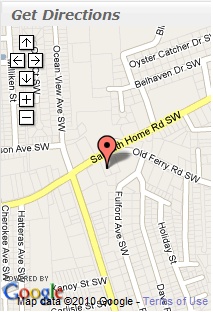North Carolina Child Support FAQ’s
- If I have custody of my children, will I receive child support?
- What determines the amount of child support I will receive?
- How long is child support received?
- If my spouse files bankruptcy, can he get out of a paying his child support?
- Can a parent refuse visitation if child support is not paid?
- Are step parents ever required to pay child support for their spouse’s children?
- Do both parties need to fill out a financial affidavit for child support?
- Can I get my attorney feeds paid in a child support motion?
- Can child support be modified?
- What is my spouse is not paying child support? What can I do?
In North Carolina, the custodial parent receives child support from the non-custodial parent, who is required by law to pay. Child support is typically made based on guidelines by the state, though judges have the discretion to deviate from that if they feel it’s necessary.
In North Carolina, child support is based on the combined gross income of the mother and the father. Other considerations include work related daycare expenses, health insurance premiums, amount of overnights spent with the child and other children to support. The child support is meant to meet the reasonable needs of the child for maintenance, health and education.
Child support is received until a child turns 18 or is emancipated from their parents. Occasionally, child support can go longer than 18 years. For instance, if a child reaches 18 but has not yet graduated from high school, or if the parents have mutually agreed to extend the payments for secondary schooling. Also, if a child has mental or physical limitations which impede them from being self supporting, then the support could be extended.
No. Bankruptcy does not discharge child support payments.
Not legally. The two are entirely separate issues.
Typically no, unless a written and notarized agreement was put into place stipulating that payments would be made.
Typically, yes.
It’s possible, provided that the action is for child support only, that the fees are reasonable, that the party is acting in good faith, and has insufficient funds to cover the lawsuit. Furthermore, the party ordered to pay child support must have refused to provide adequate support under the circumstances existing at the time of the suit.
Yes. It depends on how it was initially set up as to how it can be done. If the support was decided in a separation agreement, and not through a court order, then the moving party must simply show what the amount of support needed is at the time of the hearing. Since the courts haven’t ever ruled on the amount, they can completely disregard the old settlement if they wish.
If, however, the support was through a court order, then the party must show substantial and material changed circumstances in order to modify support. The courts would look at the needs to the child, each parent’s gross income, and the other financial factors affecting each parent.
There are several remedies available to you. You can ask the court to hold your ex-spouse in contempt of court for not paying. If he is found guilty, he could be sentenced to jail. You could also get his wages garnished. Your spouse’s employer would hold money out of his paycheck and pay you directly.
You can contact the Child Support Enforcement Agency for help with this matter. They are a government agency, which does not charge any fees up front, and are the most cost effective method available. However, they can also be quite slow. Alternately, you can contact a lawyer for help with this matter. For a free consultation, contact our law firm.

